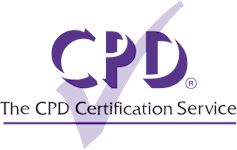
Safeguarding: Safeguarding Course
Safeguarding Adults by CPD | Free PDF Certificate | Video based Learning | Quiz Based Assessment
Inspire London College Ltd
Summary
- Exam(s) / assessment(s) is included in price
- Tutor is available to students
Add to basket or enquire
Overview
Every human has a right to be treated in a fair and just manner, with respect. It is not a complicated or too challenging idea, but it is one that people should understand and agree with, regardless of who they are. But, unfortunately, it often feels like this fundamental right is being taken away from people in today's world.
The Safeguarding Adults course is a gateway to working with the vulnerable adults in our community, responsible for welfare and well-being. It is designed to educate those working with vulnerable adults and those thinking of moving into healthcare work.
Whether in regards to laws or just day-to-day interactions with businesses and strangers, the idea of being treated respectfully by others seems lost in many situations. It's a topic that deserves a lot more attention than it has been getting, though.
Participants should understand the law relating to safeguarding or one day hope to work in the care or social work. In addition, it requires a commitment to putting all practice controls and safeguards in place with adults throughout their professional life.
Safeguarding Adults course has been created explicitly because of the increased awareness of safeguarding amongst the public, especially with vulnerable adults in our communities. Vulnerable adults are defined as people who are or may be at risk of abuse, neglect, or maltreatment. It often includes older people, some people with disabilities, and people more prone to memory loss.
The learner will understand what safeguarding adults is about, safeguarding processes, and developing a safeguarding plan. Those who work in domiciliary care, the NHS, community centres, prisons, or with a family member at home set out the roles and responsibilities everyone must undertake to protect an adult's right to live in safety, free from abuse and neglect.
Organisations must take appropriate and proportional measures necessary to protect adults in care while still ensuring they are supported and empowered to control how they want to live their lives. This course can bring you one step closer to being able to do so this.
It means that whatever the circumstance, you and the organisation you work for must take appropriate and proportional measures necessary to protect adults in your care while still ensuring they are supported and empowered to have control over how they want to live their lives.
During this course, you will hear many facts, figures, and details surrounding the risk to adults in need of care and support, the types of abuse suffered. Key safeguarding legislation put in place to minimise the abuse of adults with care and support needs.
By the end of this course, you will have a better understanding of safeguarding principles and apply them to your role.
Learning Outcomes of Safeguarding Adults Course
It includes being able to define the critical terminology concerning safeguarding that are:
- Identify the principle laws that relate to safeguarding
- Why they have been put in place to minimise abuse
- Recognise and respond to the ten types of abuse suffered by vulnerable adults
- Identify and report concerns of abuse or neglect
- Describe your role, responsibilities, and boundaries
- Ensure people are supported and encouraged to make their own decisions, give informed consent, and manage the environment to minimise the risk of abuse.
Need of Safeguarding Adults Course
The need for safeguarding courses is not new; over the years, many organisations have produced guidelines and procedures to deal with any safeguarding issues that may arise within their businesses.
This course is aimed at anyone who has a duty of care for or comes into contact with adults in need of care and support, either as a paid professional or a volunteer. It aims to provide a sound, evidence-based understanding of safeguarding adults. And equip learners with the skills and knowledge required to develop effective safeguarding plans.
This Safeguarding Adults course is designed to meet the needs of learners working in health or social care with adults at risk of harm, including professionals in the NHS, local government, charities, and the voluntary sector.
CPD
Course media
Resources
- Safeguarding Adults - download
Description
Our Safeguarding courses have been created because, first and foremost, each and every one of us has basic human rights. Chief among these is the right to be healthy, happy and treated well, regardless of race, age, gender or location. When these rights are abused in some way it’s wrong, and it is therefore vital that guidelines, policies and procedures are followed to enable everyone, without exception to live a life in which these basic values and rights are maintained and upheld.
This course is aimed at anyone who has a duty of care for, or comes into contact with, adults in need of care and support, either as a paid professional or a volunteer. This includes, but isn’t limited to, those that work in domiciliary care, the NHS, community centres, prisons or with a family member at home, and sets out the roles and responsibilities everyone must undertake to protect an adult’s right to live in safety, free from abuse and neglect. You and the organisation you work for must take appropriate and proportional measures necessary for the protection of adults in your care, while still ensuring they are supported and empowered to have control over how they want to live their lives and this course can bring you one step closer to being able to do this.
This means that whatever the circumstance, you and the organisation you work for must take appropriate and proportional measures necessary for the protection of adults in your care, while still ensuring they are supported and empowered to have control over how they want to live their lives.
During this course you will hear many facts, figures and details surrounding the risk to adults in need of care and support, the types of abuse suffered and key safeguarding legislation put in place to minimise the abuse of adults with care and support needs. By the end of this course, you will have learned a better understanding of safeguarding principles and be able to apply them to your role.
This includes being able to define the key terminology in relation to safeguarding; identify the principle laws that relate to safeguarding and why they have been put in place to minimise abuse; recognise and respond to the ten types of abuse suffered by vulnerable adults; identify and report concerns of abuse or neglect; describe your role, responsibilities and boundaries; ensure people are supported and encouraged to make their own decisions and give informed consent, and finally manage the environment to minimise the risk of abuse.
COURSE OUTLINE
Module 1: Introduction and Definitions
Module 2: Types of Abuse and the Rights of Vulnerable Adults
Module 3: Recognising the Signs of Abuse
Module 4: What to Do if you Suspect Abuse
Module 5: Safeguarding Legislation
DURATION
The total duration of course video content is 80 Minutes, it does not include the time taken to read, analyse and attempt the quiz or conduct any other research.
Learner can access the Learning Platform 24/7. The time period to complete the course depends on the learner’s pace and the time dedicated for training. Though the course is self-paced, but learner will be given maximum period of 12 Months from the date of enrolment. Learner may request for extension but, ILC holds the right to close/lock the course after completion of 12 Months.
ASSESSMENT
After successful enrolment, the learner will get access to the Learning Platform, where the training material is available. The training is in the video format, and each module consist of many videos.
Each module is followed by a 3-5 Multiple Choice Questions. You will have the option to review the video content as often you like, and submit the test once you are satisfied with the answers. The minimum pass score is 80% and you will have 3 attempts to pass test for each module. But, if in any condition, you cannot pass in three attempts, you can request 3 more attempts for all modules, after which all modules will be locked.
ACCREDITATION
The courses offered by Inspire London College are approved and accredited by The CPD Certification Services and different organisations in specific field including IIRSM (International Institute of Risk and Safety Management), IATP (Independent Asbestos Training Providers), and IFE (Institution of Fire Engineers).
CERTIFICATION
There are two options for certificate of completion:
OPTION 1
After completion of Assessment, ‘Get Your Certificate’ button will become available. Learner can use this to download free certificate in PDF format.
- Certificate of Completion(PDF format) = Free of Cost
- Certificate of Completion(Hardcopy) = £15
OPTION 2
You can also get CPD Accredited Certificate from Inspire London College along with transcript either in PDF format or Hardcopy.
CPD Accredited Certificate of Completion along with Transcript (PDF format) = £29
CPD Accredited Certificate of Completion along with Transcript (Hardcopy) £40 + Postal charges £15 = £55
Who is this course for?
Also this course, without any prior knowledge of Safeguarding Adults, the learners can take this training course and in addition to this, there are no age restrictions. Thus, anyone who is passionate and ambitious about Safeguarding Adults can take the course. There are no specific deadlines for admission, and you can enrol anytime on this course.
Requirements
- Good knowledge of the English Language
- Good understanding of ICT
Recommended System Requirements
- Browser: Up to date web browser
- Video: Up to date video drivers
- Memory: 1Gb+ RAM
- Download Speed: Broadband (3Mb+)
Career path
Learning these skills will help you sustain your career in:
- Nursing
- Home Care
- Physical Therapy
- Human Services
- Healthcare Provider Assistant
- Medical Assistant
Questions and answers
Currently there are no Q&As for this course. Be the first to ask a question.
Reviews
Currently there are no reviews for this course. Be the first to leave a review.
Legal information
This course is advertised on reed.co.uk by the Course Provider, whose terms and conditions apply. Purchases are made directly from the Course Provider, and as such, content and materials are supplied by the Course Provider directly. Reed is acting as agent and not reseller in relation to this course. Reed's only responsibility is to facilitate your payment for the course. It is your responsibility to review and agree to the Course Provider's terms and conditions and satisfy yourself as to the suitability of the course you intend to purchase. Reed will not have any responsibility for the content of the course and/or associated materials.




